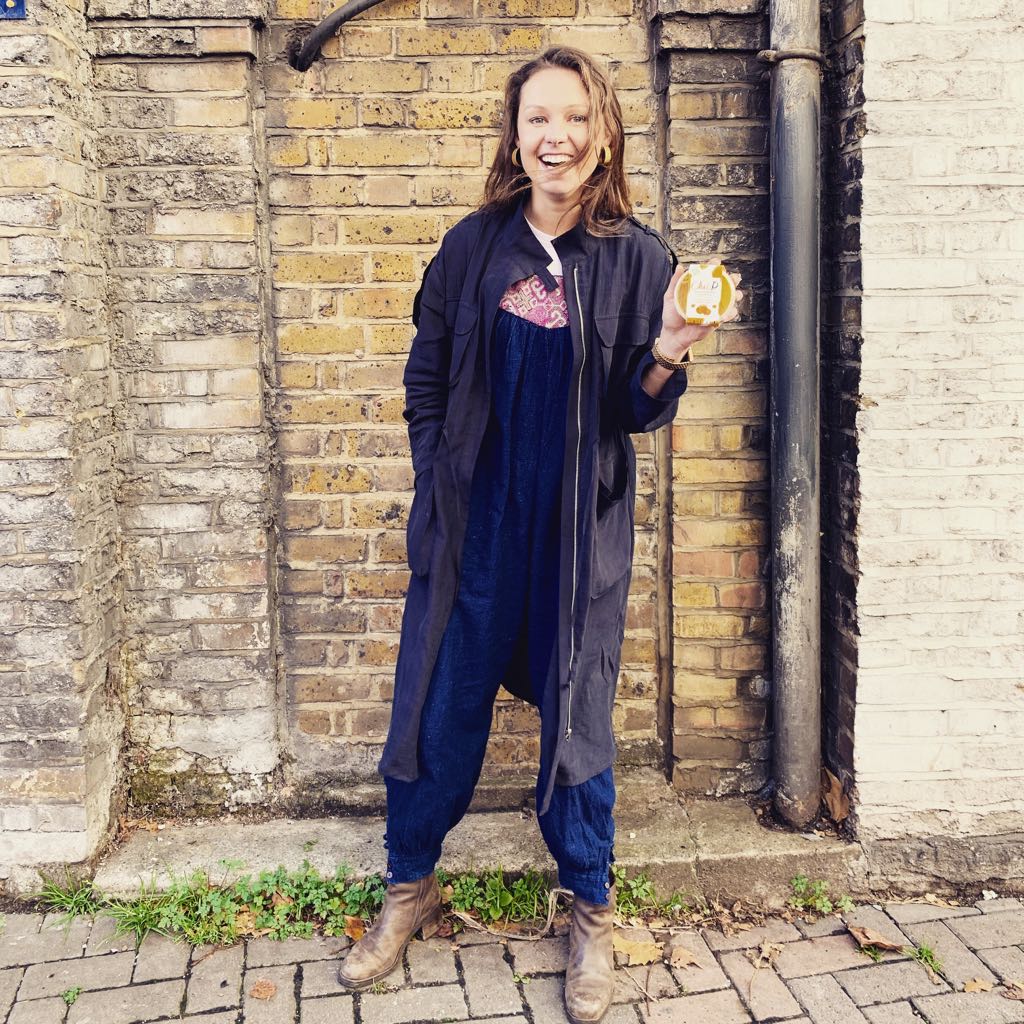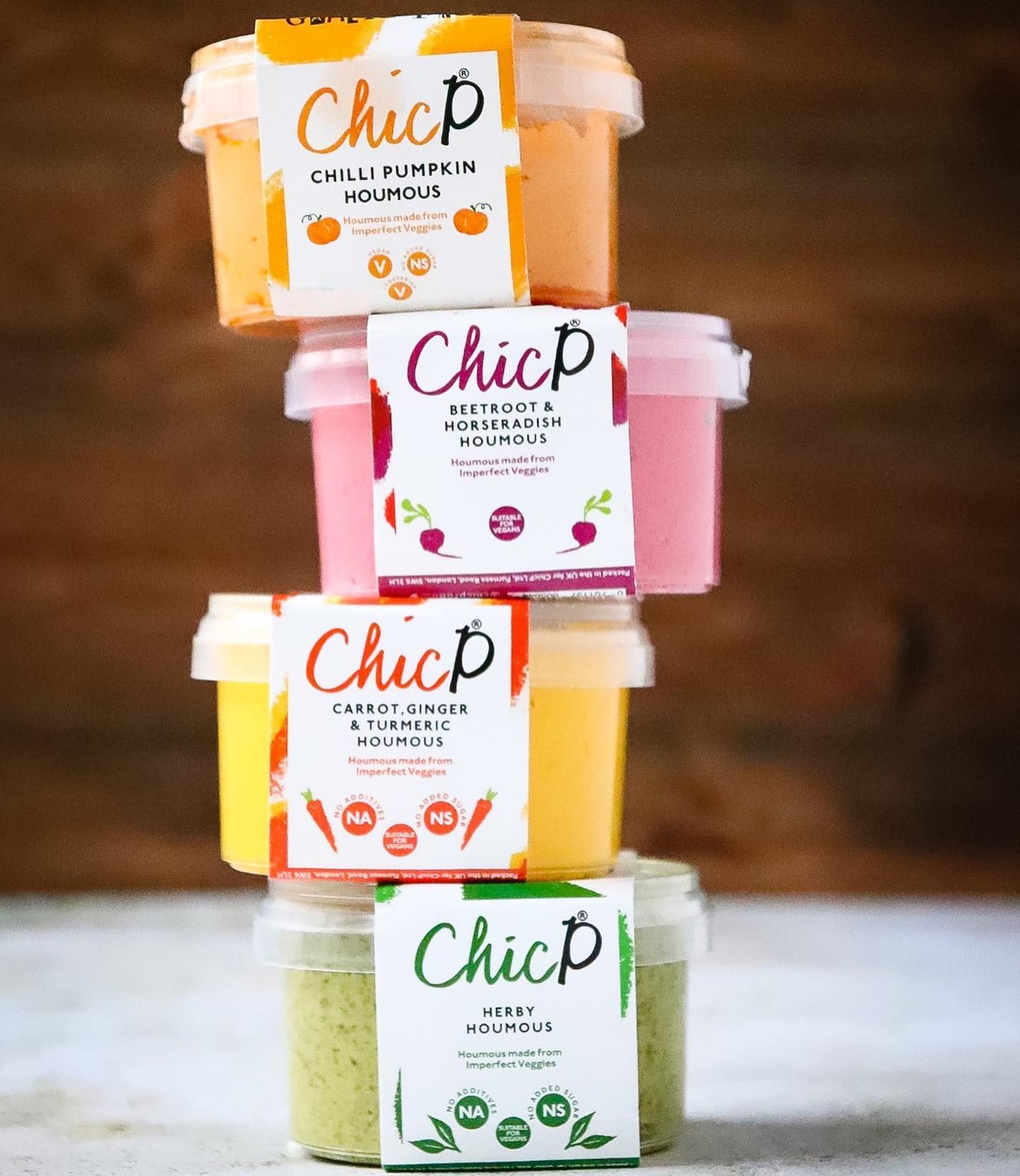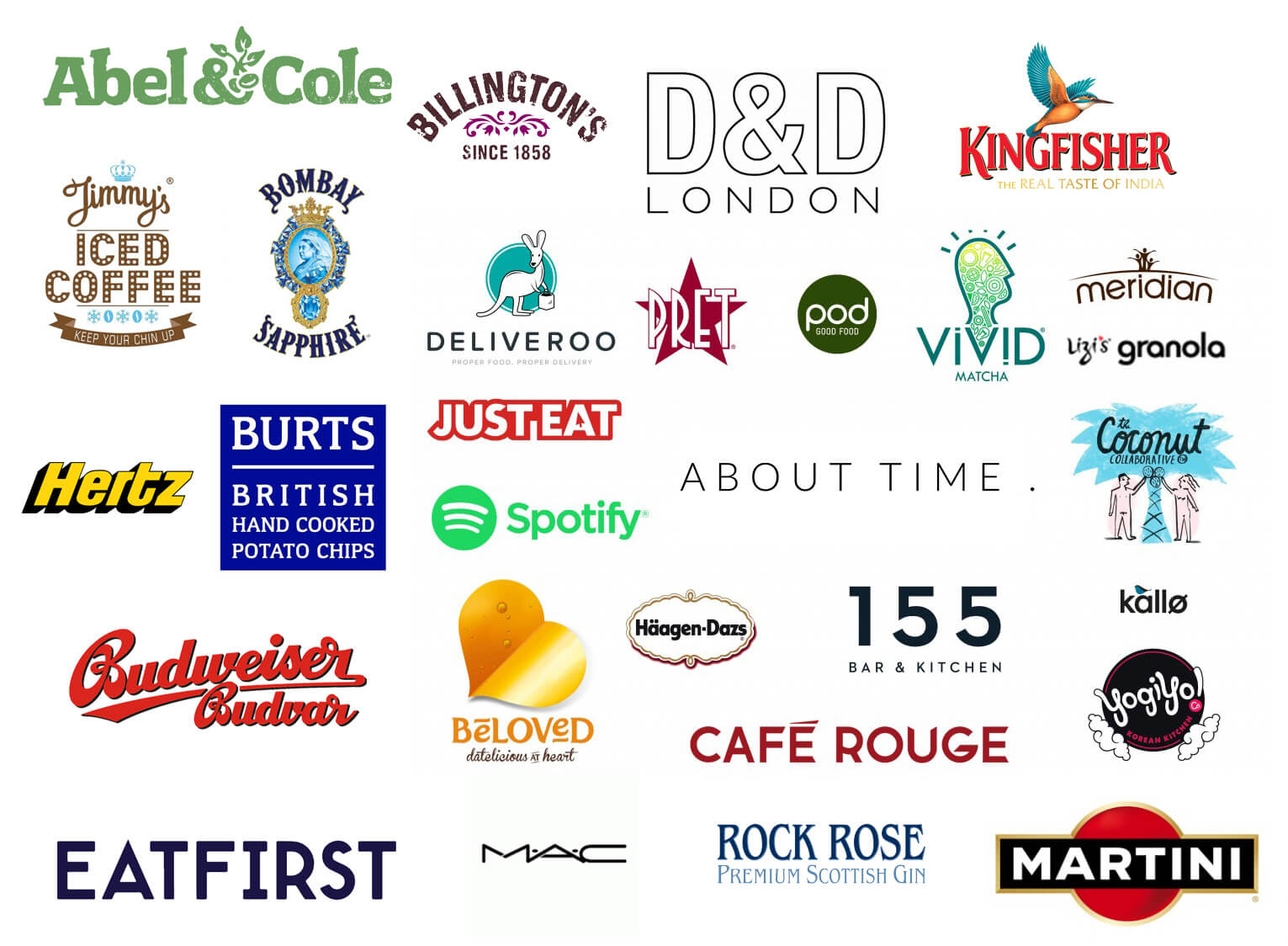Monday Motivation: ChicP Founder Hannah McCollumBy Jodie Duddy
For this week’s #MondayMotivation, our new series profiling inspiring entrepreneurs, we met with Hannah McCollum, Founder of ChicP, a raw vegetable hummus company producing delicious alternative dips, founded on a passionate commitment to reducing food waste. We sat down with Hannah to talk waste, product development and the challenges of running a start-up:
What inspired you to launch ChicP?

I founded ChicP in early 2016 after having worked in the catering industry for years and seeing the amount of food go to waste. As a private chef, I would always turn the leftover vegetable dishes into dips or houmous the next day – I soon found myself being asked on a daily account ‘What’s the dip of the day Hannah?’. I also wanted to help British farmers by using their surplus and by educating people about food waste.
Which of your houmous flavours is your favourite and why?
Ooh, this is a tricky one. It changes, but most of the time it’s the Carrot, Ginger and Turmeric Houmous. It’s such a light consistency, and goes with almost anything and you don’t feel really full if you eat too much. It slips down way to easily and is also, in my opinion, the healthiest – with root ginger and root turmeric, it’s a wonderful winter warmer!
Why don’t you refer to yourself as a ‘successful entrepreneur’?
Because I’ve only been going for 3 years and I’ve got a long way to go. I think I would need to pay myself a proper wage for a good few years and accomplish a lot more of my targets before I could call myself a successful entrepreneur. I have however learnt a huge amount in the last few years and wouldn’t turn it back for anything.
Where would you love to see ChicP stocked in the future?

I would love to see ChicP stocked in at least 3 major retailers along with some of our new product ranges which I hope to see launch next year. I’d also like to see our products stocked on transport systems, such as with the trains and on aeroplanes. I’d also like to see us in WHsmith and Boots for ‘on the go’ snacking.
How do you think the hummus market will change in the future?
It seems to continue to grow and I hope it will continue this way. More than 40% of Brits see houmous as a staple fridge item and more and more are open to trying new flavours. I think new product development in flavours will continue to grow especially with sustainable, plant and protein-based ingredients.
What do you think is an explanation for the popularity of houmous over the past couple of years?
It’s just such a good product! It’s also extremely versatile and is great in so many situations – from snacking to having with main meals. It really adds something to a meal which is more substantial than a sauce and yet is not too heavy. It’s great for on the go, babies, parties and events. It’s also healthy and full of good fats as well as having no sugar.
What advice would you give, if you could speak to your past self just starting the company?
I would say learn to prioritise and really know what those priorities are. My dad once said to me; ‘you seem like you’re always very busy but just make sure the things that you’re doing are worthwhile and actually driving the business forward.’ This made me really think and focus on strategy and completing the important things first.
What has been your biggest challenge as an entrepreneur?
My shelf life and finding a manufacturer.
What is your company doing to reduce its environmental footprint?

We are working to reduce food waste and also reduce our carbon footprint. We’re hopefully about to start using the UK’s first grown chickpeas. Our packaging (which is 100% recyclable) is hopefully next year going to be made from 99% recycled plastic – so that we can slowly but surely become a circular economy. We also do a lot of talks and panels to educate people about food waste and living more sustainably. Hopefully that will make a big difference to the overall environmental footprint if those people start to make changes.


